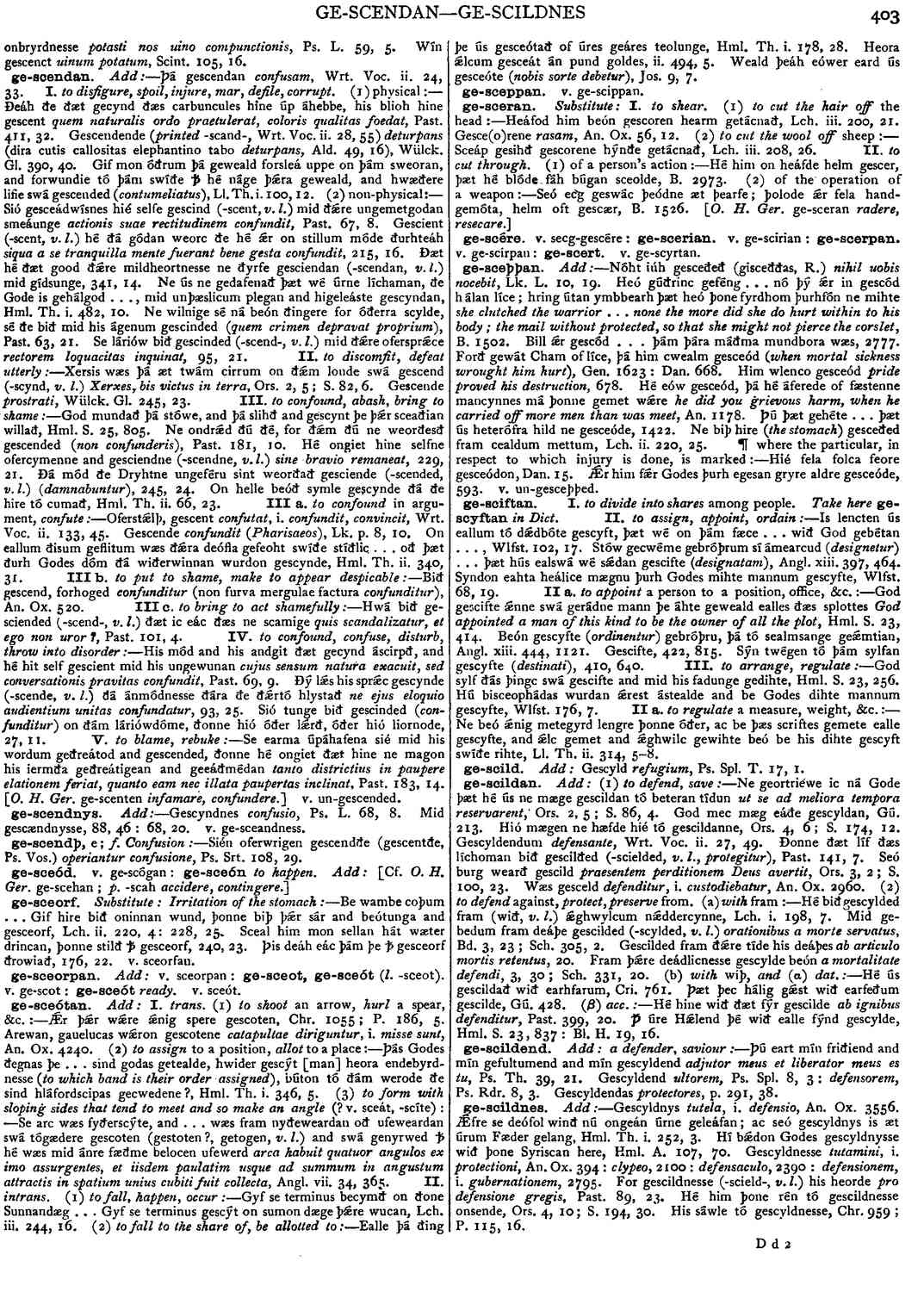ge-sceþþan
-
Nóht iúh gesceðeð (gisceððas, R. )
nihil uobis nocebit,
- Lk. L. 10, 19.
-
Heó gúðrinc geféng . . . nó þý ǽr in gescód h álan líce; hring útan ymbbearh þæt heó þone fyrdhom þurhfón ne mihte
she clutched the warrior . . . none the more did she do hurt within to his body; the mail without protected, so that she might not pierce the corslet, B.
1502. - Bill ǽr gescód . . . þám þára máðma mundbora wæs, 2777.
-
Forð gewát Cham of líce, þá him cwealm gesceód [
when mortal sickness wrought him hurt),
- Gen. 1623 : Dan. 668.
-
Him wlenco gesceód
pride proved his destruction,
678. -
Hé eów gesceód, þá hé áferede of fæstenne mancynnes má þonne gemet wǽre
he did you grievous harm, when he carried off more men than was meet,
- An. 1178.
- Þú þæt gehéte . . . þæt ús heterófra hild ne gesceóde, 1422.
-
Ne biþ hire
(the stomach)
gesceóed fram cealdum mettum,- Lch. ii. 220, 25. ¶
- where the particular, in respect to which injury is done, is marked
Hié fela folca feore gesceódon,
- Dan. 15.
- Ǽr him fǽr Godes þurh egesan gryre aldre gesceóde, 593.
Bosworth, Joseph. “ge-sceþþan.” In An Anglo-Saxon Dictionary Online, edited by Thomas Northcote Toller, Christ Sean, and Ondřej Tichy. Prague: Faculty of Arts, Charles University, 2014. https://bosworthtoller.com/49550.
Checked: 0